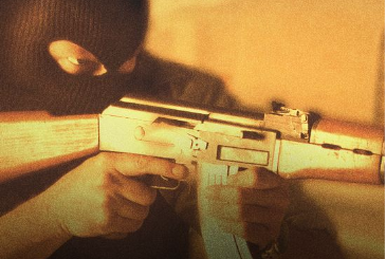Dasiwang: Your Gateway to Trending Insights
Stay updated with the latest news, trends, and insights across various topics.
When Team Killers Get a Taste of Their Own Medicine
Discover the shocking revenge stories of team killers facing karma. Don’t miss these jaw-dropping tales of poetic justice!
The Psychology Behind Team Killers: Why Do They Do It?
The phenomenon of team killers in competitive gaming environments often puzzles players and developers alike. At its core, the psychology behind such behavior can stem from a variety of factors, including frustration, revenge, and the perceived lack of accountability. Many team killers may feel motivated by a desire to express their discontent with team dynamics, especially if they believe that their teammates are underperforming or not cooperating effectively. This sense of betrayal can trigger actions that disrupt team cohesion, and in some cases, even escalate into intentional sabotage. Players who engage in this behavior often justify it through a distorted lens of fairness, aiming to balance what they perceive as a lopsided competition.
Another critical aspect of understanding team killers lies in the anonymous nature of online interactions. The digital divide can lead individuals to act in ways they wouldn't in face-to-face scenarios, giving way to a phenomenon known as the online disinhibition effect. This detachment can diminish empathy and encourage negative behaviors, including targeting teammates. Additionally, some players might feel that their actions are inconsequential in the grand scheme of a game, leading to a toxic environment where team killers thrive. Overall, addressing these psychological factors is essential in fostering healthier gaming experiences and discouraging negative behaviors that can mar the integrity of gameplay.

Counter-Strike is a popular tactical first-person shooter that has captivated gamers worldwide. Players engage in team-based combat where they can choose to be part of the terrorist or counter-terrorist teams, completing various objectives. For those looking to enhance their gameplay, cs2 knives are a sought-after feature, adding both style and functionality to the game.
Karma or Coincidence? Stories of Revenge on Team Killers
In the world of online gaming, the line between karma and coincidence often blurs, especially when it comes to stories of revenge on team killers. These players, who deliberately sabotage their teammates for personal satisfaction, frequently find themselves facing unexpected consequences. For instance, consider the tale of a dedicated player who endured constant griefing from a team killer. After several matches filled with frustration, this skilled gamer decided enough was enough. Utilizing their superior skills, they gathered their friends and orchestrated a revenge plan that not only left the team killer in the dust but also turned the tide of the game. This incident raises the question: is it just luck, or does the universe balance the scales for those who strive for fairness?
Another story comes from a popular online shooter where a player, tired of continuously being betrayed, chose to take matters into their own hands. They formed alliances with other players who had experienced similar grief and crafted a strategy specifically targeting the unrepentant team killer. What unfolded was a series of coordinated attacks that not only punished the offender but also brought a sense of justice to their team. It’s these moments that make us wonder if karma plays a significant role in gaming, rewarding those who stand up against injustice while cursing the perpetrators with misfortune. In the end, these tales serve as reminders that in the digital realm, for every act of malice, there's often a story of retribution waiting to unfold.
How to Deal with Team Killers: Strategies for Gamers
Dealing with team killers in gaming can be frustrating, especially when they disrupt the flow of the game and negatively impact your team’s performance. To manage this issue effectively, start by communicating openly with your team. Use in-game chat or voice communication to address the behavior directly, but remember to remain calm and diplomatic. Clearly express how their actions are affecting the team and suggest ways to improve the situation. You can say something like, “Hey, I noticed you’re making some unconventional plays. Let's try to stick together to increase our chances of winning.”
This sets a constructive tone and might encourage cooperation.
If direct communication doesn’t yield results, consider implementing additional strategies. First, establish a buddy system where two team members can watch each other's backs and discourage team killing behavior through mutual accountability. Additionally, if you're playing in a team-based environment with a ranking system, report the offending player to the game administrators. Utilize in-game reporting features to document the team killer's actions, ensuring that you provide specific examples of their negative impact on gameplay.